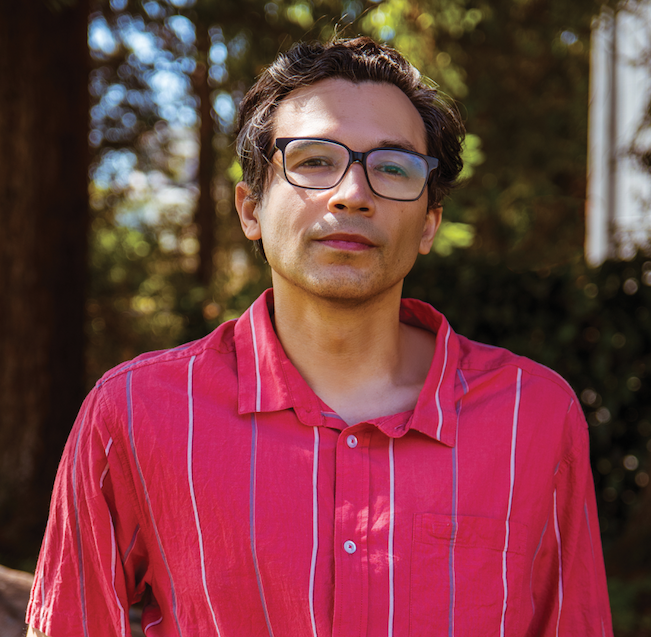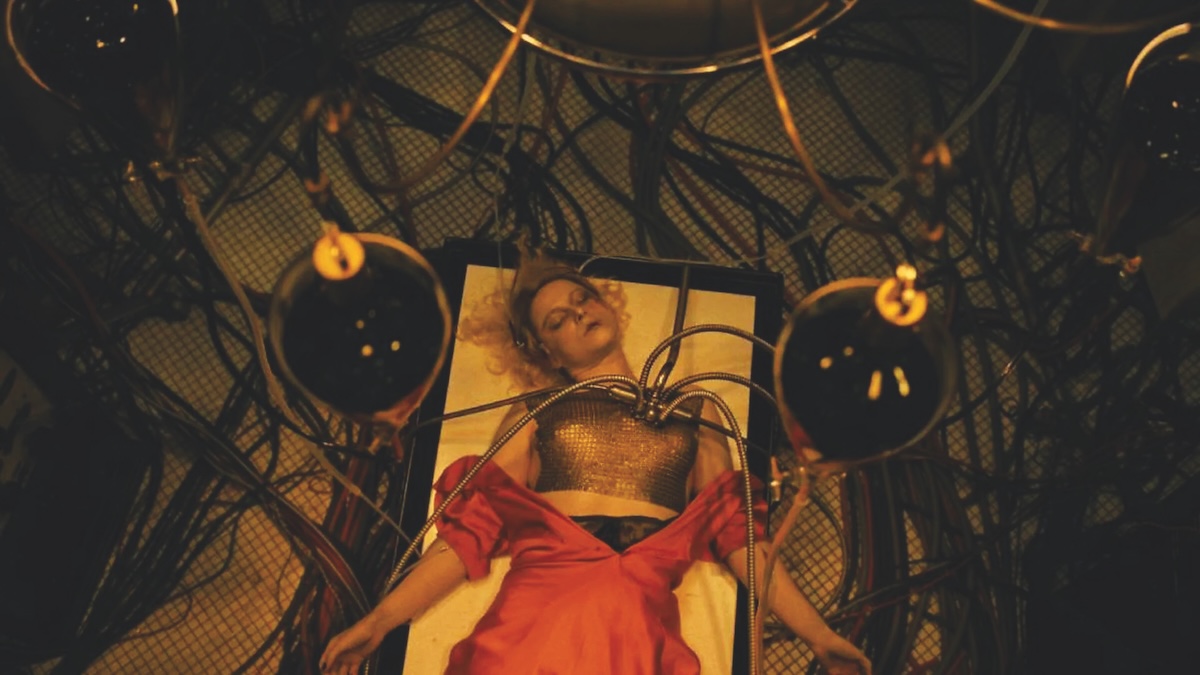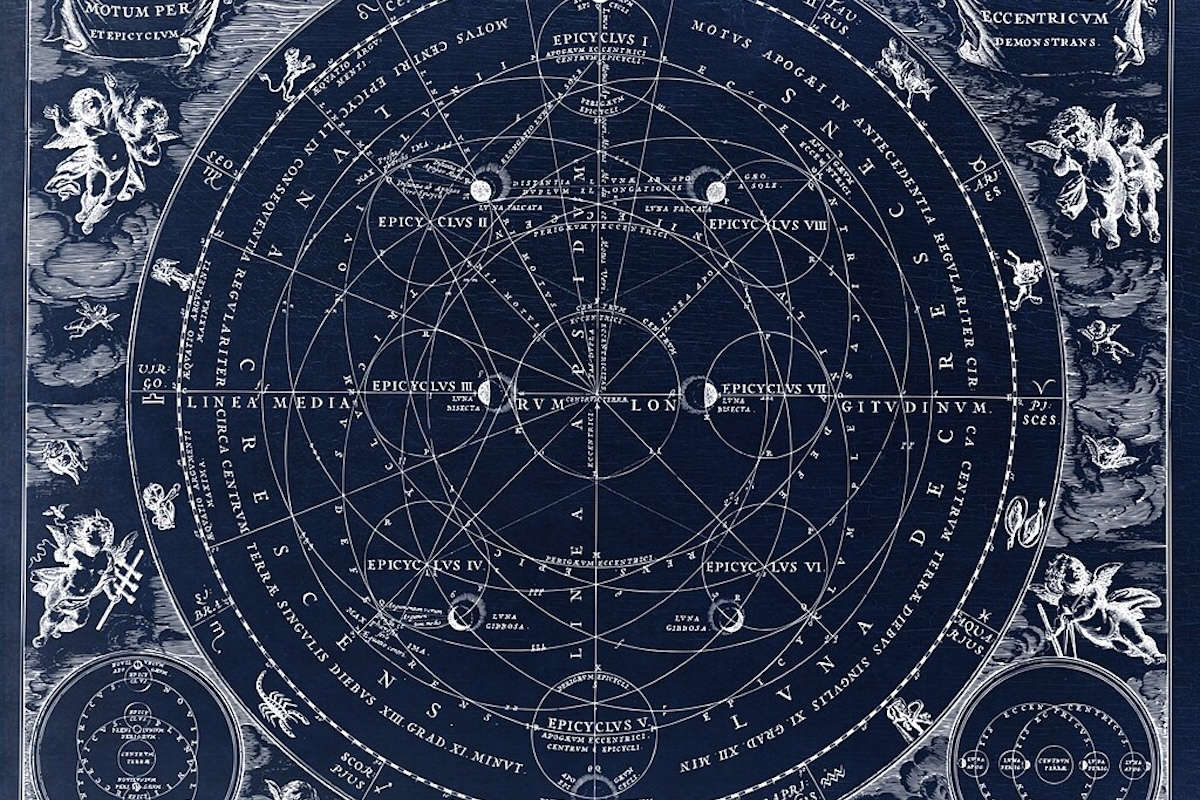Should a guy in his 30s be skateboarding in the dark?
In his new collection, Inter State, long-time East Bay essayist-poet-playwright-skater Jose Vadi, 36, travels the length of California and re-acquaints himself with the state’s zeitgeist. In eight perceptive essays, his reportorial eye falls on sights as varied as the National Cesar Chavez Memorial, the California High Speed Rail Authority and blowing a tire on the Grapevine.
Vadi grew up in Pomona, his father a Cal Poly professor, his mother a schoolteacher, his “abuelo”—grandfather—a migrant farmworker. Vadi himself came to the East Bay to attend Cal and soon found literary inspiration through the Youth Speaks program.
“I qualified for the slam team, which is a big deal for teen poetry,” he said in a telephone interview. His mentors, he said, included people who helped create Youth Speaks; Bay Area heavyweights such as photographer Joan Osato, current Kennedy Center Artistic Director for Social Impact Marc Bamuthi Joseph, Youth Speaks founder James Kass and current Magic Theatre Artistic Director Sean San Jose, who “really helped [and] allowed me to see that I was a writer.” Along with Youth Speaks peers such as Chinaka Hodge and Rafael Casal, these mentors “helped introduce me to the Bay Area art scene.”
Vadi’s work has appeared in Catapult, McSweeney’s, the East Bay Express and many other publications. He received the San Francisco Foundation’s Sherson Performing Arts Fellowship for his debut play, a eulogy for three, and he’s author of SoMa/Lurk, a book of photos and poems documenting “the type of changes that were happening around me” in San Francisco’s South of Market District.
Vadi started skating at 12, and continues practicing the sport. He didn’t begin writing about skating until very recently.
“It was fun to start referencing skateboarding within non-skateboarding essays,” he said. “Skateboarding itself has matured as a culture. There’s more writing and more journalism that’s encouraged and presented in non-American and American formats.”
After attending UC Berkeley, Vadi earned his MFA at Mills College, focusing on narrative non-fiction.
According to Vadi, the seeds for Inter State were planted when current Soft Skull Press Editor Mensah Demary, whom Vadi knew from poetry circles, invited him to submit essays to the Catapult website.
Vadi submitted “these personal, ethnographic essays documenting the changes happening around me, and my conflicting feelings towards them. After those essays, I submitted A California Inquiry, and it was at that point that Mensah suggested writing a book about California.”
Vadi said, “I feel like Inter State is a series of essays that answer a lot of questions I had about myself and my family and my relationship with California. By way of answering those questions, it allowed me to investigate other questions I came up with along the way that hint at California’s future.”
The title essay starts with Vadi digitizing video of his paternal grandfather, a former Central Valley farmworker, whom Vadi left behind when he moved to the East Bay for UC Berkeley. It’s the beginning of a journey that takes Vadi through his own personal history and into California’s unpredictable present. Vadi presents himself in three modes: “aging, obsessed skateboarder,” “laid-off San Francisco tech worker” and “grandson of Mexican farmworkers.”
The book’s second offering is “Getting to Suzy’s,” Vadi’s chronicle of his after-work, on-foot, cross-town trek to a cherished bar, where he plays the jukebox according to his own righteous playlist. He writes: “Strangers see me as a skinny tall kid with glasses and questionable racial identity who’s always turning the goddamn block into a reggae concert with those cloves or blacks or whatever the hell he’s smoking.”
“‘Suzy’s’ is very fun to read in public and very fun to talk about,” Vadi said. “It’s kind of a ridiculous night-on-the-town story. But as a writer, I’m probably most proud of ‘Inter State’ and ‘Spot Check.’”
“Spot Check” is the most skate-centric piece in the book, with a killer opening clause: “Crack cocaine is a part of the design of every good skate park in the world…” Vadi then reminisces about early 1990s skate culture in San Francisco and elsewhere, capturing the clandestine allure of trespassing on wheels.
There’s also anger in the essay, as when 15-year-old Vadi encounters racist Los Angeles cops who ticket a brown-skinned kid while the white skaters run away.
Vadi writes, “It’s a harsh lesson to realize that no matter how high my grades are, fucking up like this takes all precedence, putting me and my parents in the crosshairs of a judge’s wrath…”
In “A California Inquiry,” Vadi mourns the selling of his grandfather’s home, appreciates the accuracy of the mariachi played in the Pixar animated film Coco, survives the Northridge earthquake, dines with celebrities in Beverly Hills and contemplates the wildfires consuming the state. He writes, “This is what it is to perpetually feel displaced and privileged at the same time in twenty-first century California.”
Having recently moved to Sacramento with his wife, Vadi is still a defender of Oakland over San Francisco. He writes, “Despite the similar amount of crime in the two cities, it’s Oakland where everyone assumes they’ll be shot on sight or that the ghost of Huey Newton will greet them at the 12th Street BART with a shotgun and a toll for Whites Only.”
“San Francisco has a lot of business powering that downtown area and beyond,” he said. “Everyone is freaking out about businesses supposedly leaving San Francisco, but there are a lot of big-money businesses that are not leaving any time soon.”
In “Post: An Afterworld,” Vadi slips in under the publishing wire to tackle the impact of Covid.
“If the essays in this book are thematic seams, or fault lines, connecting California, then the COVID-19 pandemic, police violence and 2020’s record-breaking California fire season grabbed and pulled at those seams as hard, quickly and destructively as possible.”
Vadi was living in the Rockridge/Temescal area when the pandemic first hit, he said, “and I stayed around there. I didn’t ride BART for a year, which is insane to think about, given the essays in this book.”
He said, “Inter State doesn’t color-correct its picture of California, presenting a nuanced and honest portrait of a place just as likely to crush your dreams as make them come true.
“I keep thinking about that quote from the film Last Black Man in San Francisco, where [a character] says, ‘You can’t hate The City unless you love it.’ I’m paraphrasing, but that line rings true for me and my relationship with California. I can’t hate it unless I love it, and I feel both sometimes. But I love California, and I’m glad to be here still.”






